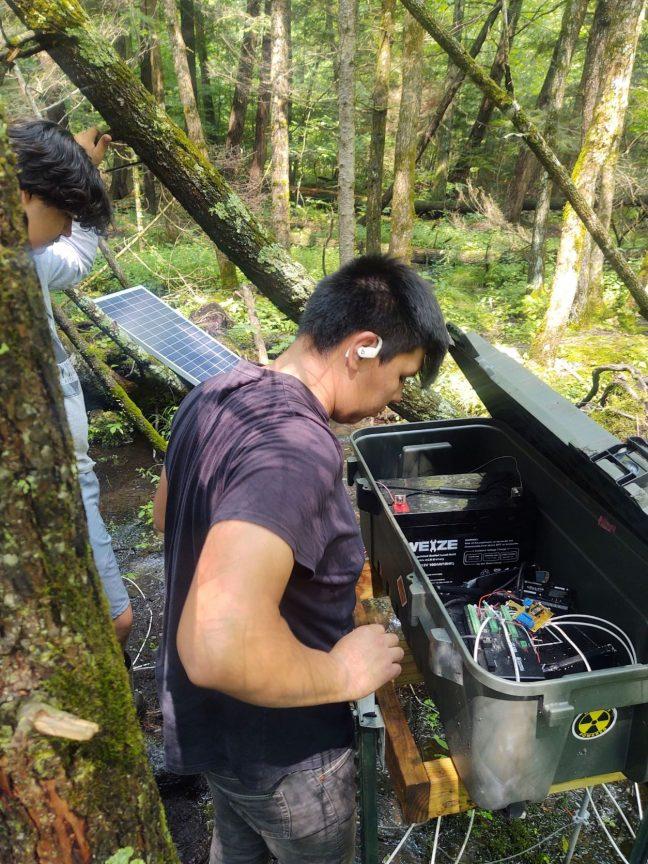University of Wisconsin graduate researcher Angela Waupochick thinks tribal land management strategy is the reason the emerald ash borer, or EAB, an invasive insect native to Asia, hasn’t decimated black ash trees on tribal wetlands to the same degree it has in the rest of the Great Lakes region. By studying the water table of forested wetlands, her current research hopes to develop land management strategies that preserve the ecosystems as the population of black ash thins.
“Our black ash is going to be reduced, but at least let’s maintain that habitat,” Waupochick said.
Waupochick began to appreciate black ash as a natural resources manager for the Menominee Indian Tribe. She had always been aware of the cultural importance of the species — for thousands of years before European contact, the tree was used to make tools, baskets, fish traps and ceremonial artifacts. Her attachment to the trees, however, stemmed from their importance in maintaining the forested wetland ecosystem.
Waupochick said black ash returns excess water to the atmosphere far more efficiently than other tree species. Doing so draws down the water table and allows trees to coexist with shrubs. This is the reason for the high biodiversity of forested wetlands.
Environmental justice talk highlights importance of ecosystems of equity
Covering roughly 500,000 hectares in Michigan, Minnesota and Wisconsin, black ash trees fill an important ecological niche, according to the Landscape Conservation Cooperative Network, a partnership bringing together federal and state governments, universities and First Nations. The trees serve a foundational role in areas with poor water drainage and exhibit a high degree of influence on their surrounding ecosystem.
But the species is in bad shape. Ever since EAB appeared in 2002, black ash has seen its range drastically shrink, with groves completely annihilated by the insects’ larvae. According to LCCN, scientists worry the decimation of black ash by EAB will have widespread, cascading impacts on the surrounding land, including flooding, the disappearance of trees on wetlands, a reduction in carbon sequestration and the loss of habitat for numerous species that depend on forested wetlands.
At Waupochick’s field sites, three hours by car from Madison, she employs high school students from the nearby Menominee Indian High School to help her with her field work. The students receive a hands-on, paid research experience as well as academic credit.
UW spearheads collaborative research project on environmentally sustainable bioproducts
“I think a lot of times with different research internships you have to leave your community and work on someone else’s research, which is a really good experience, but here my own tribal community youth can work on a project that is specific to our tribal forest and our tribal needs,” Waupochick said. “They get experience monitoring forest health issues and this is incredibly important.”
Waupochick hopes if her land management strategies are able to maintain the hydrology or water balance the trees require, decades from now, black ash can be reintroduced.
If black ash goes extinct, all the cultural traditions associated with the tree become lost too, Waupochick said.
“This is an effort that deserves my full attention,” Waupochick said. “And this is something that I can get behind probably for the rest of my life.”


















